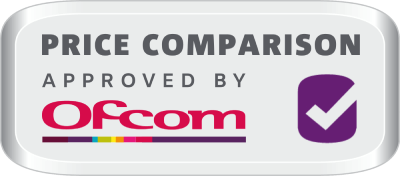What type of phone contract should I choose?
Choosing the right type of phone contract depends on several factors, including your usage patterns, budget, and how long you want to be tied to a contract agreement. Here are the main types of phone contracts and what they're best suited for:
1. Pay monthly contracts:
Ideal for those who want a new phone without paying the full price upfront, preferring to spread the cost over a long period instead. Includes set allowances for data, minutes and texts.
A free upfront cost is available for most phones. Generally, the lower the upfront cost, the greater the monthly cost.
Contract length typically ranges from 24 to 36 months. Choose a longer phone contract if you want a cheaper monthly cost.
2. Pay as you go (PAYG):
If you use your phone sparingly, or your usage varies per month, pay as you go may be a cheaper option.
With pay as you go, you purchase the phone upfront, so you’re not locked into a long term contract.
To use data, minutes and texts on your phone, you will need to top up credit in advance. You can also use your credit to buy bundles or add-ons.
3. SIM free:
With SIM free, you purchase the phone outright, without a network. This means the device is unlocked and you’re free to choose any SIM card or network to use with your phone.
SIM free is similar to pay as you go, except you’re not required to stick with a particular network.
Ideal for those who want freedom to switch SIM cards and networks at any time, without restrictions. Particularly useful if you travel frequently and need the flexibility to use local SIM cards abroad.
Can I keep my number?
Keeping your number when taking out a new phone contract is easy and straightforward. Text PAC to 65075 from your current network to receive a PAC code. You will need to hand this PAC code to your new network within 30 days to transfer your number.
Switching your number normally takes 2 working days. See our dedicated guide on switching for more information.
How are third party phone contract sellers cheaper than networks?
There are several reasons as to why third party phone contract sellers are often cheaper compared to buying directly from networks.
Third party phone contract sellers can purchase phones in bulk from manufacturers, securing lower prices they pass on to consumers. By selling contracts from multiple networks, like EE, Vodafone, Three, and O2, these retailers can sell more phones and operate more efficiently.
Additionally, third party retailers handle device support and warranties, reducing networks' support costs. While networks remain responsible for service coverage and contract management, including billing and renewals, this arrangement allows third parties to offer competitive deals.
Third party retailers also earn commissions from networks for every new customer, enabling them to subsidise consumer prices further. Networks can accept short-term profit losses, banking on customer loyalty to renew contracts, thus profiting in the long run.
Which network should I choose?
Choosing the right network depends on a number of factors, ranging from coverage, reliability, cost and customer service.
Check the coverage maps of different networks to ensure strong signal strength in your area and other locations you frequently visit.
If you use your phone for streaming, gaming, or other high-bandwidth activities, look for a network that is known for fast data speeds, particularly with 5G connectivity.
Consider how much you’re willing to spend as well. Major networks such as EE tend to be expensive, however smaller providers like iD Mobile can offer much cheaper prices and better deals.
Good customer service can be invaluable, especially when you encounter issues. Make sure to check customer reviews on websites such as Trustpilot.
Are the deals above sold by CompareDial?
We do not directly sell phone or SIM only contracts. We are a comparison platform that curates the best deals from the top retailers and networks in the UK.
By clicking on a deal at CompareDial, you'll be redirected to the respective retailer’s or network's website.
To order a phone contract, click on a deal you wish to purchase. You’ll be sent to the order page on the retailer’s website. You’ll be asked for your personal details and payment information. Most merchants will perform a credit check before they approve your order, which can take 1 to 2 working days to complete.
What if I change my mind after taking out a phone contract?
By law, online orders can be returnable up to 14 days from delivery, which also applies to phone contracts. Some retailers offer extended return periods, but they are not legally required to do so.
After 14 days, most networks require you to pay an early termination fee to cancel your contract, which can be expensive. This amount varies from network to network.






